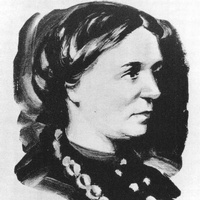
 |
|
Famous and Fascinating Women in History The World's Greatest Composers Generals and other Noteworthy People from the Civil War The Presidents of the United States The First Ladies of the United States Homes and Monuments of and to Famous People Historical People and Events by Month for Each Day of the Year! Famous Figures in Black History The Calvert Family and the Lords Baltimore Understanding the American Revolution and its People
|
Phoebe Pember The Passionate Nurse for the Confederacy By John T. Marck Phoebe Pember was born on August 23, 1823, the daughter of a very well-to-do Jewish family from Charleston, South Carolina. She married a man from Boston, who died in July 1861. Widowed, she returned to her family who was now living in Marietta, Georgia. Loyal to the Confederacy, Phoebe was friends with the wife of Secretary of War George W. Randolph, and used this relationship to achieve an appointment. Successful, she was appointed the chief matron of the 2nd division of Richmond's Chimborazo Hospital on December 1, 1862. In her service during the war, she was plagued by the usual short-comings of male doctors who believed that women should not work beside them, as well as shortages of medicines and other badly needed supplies. But, in spite of this, she continued to work tirelessly caring for the sick and wounded soldiers. She was criticized by others who said that ladies should not see the horrors of the hospitals. In response, Pember said, "In the midst of suffering and death, hoping with those almost beyond hope in this world; praying by the bedside of the lonely and heart stricken; closing the eyes of boys hardly old enough to realize man's sorrows, much less suffer man's fierce hate, a woman must soar beyond the conventional modesty considered correct under different circumstances." 
Pember remained at the Chimborazo Hospital in Richmond even after the fall of Richmond, until the hospital was taken over by Union authorities. Working on her memoirs after the war, she published them in 1879, titled, "A Southern Woman's Story," whereby she describes the suffering and unbelievable spirit of those soldiers she helped during the war. Pember possessed considerable compassion for those she tended, and in her book wrote, "Scenes of pathos occurred daily-scenes that wrung my heart and forced the dew of pity from the eyes; but feeling that enervated the mind and relaxed the body was a sentimental luxury that was not to be indulged in. There was too much work to be done...." Phoebe Pember died on March 4, 1913 in Pittsburgh, Pennsylvania. Copyright © 1990-2022 by John T. Marck. All Rights Reserved. This article and their accompanying pictures, photographs, and line art, may not be resold, reprinted, or redistributed for compensation of any kind without prior written permission from the author. |